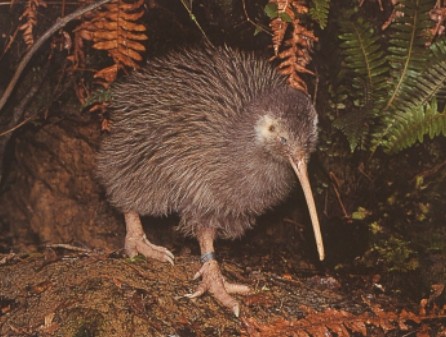 Hi there kiwi team
Hi there kiwi teamHere I am from Japan enjoying another feast.
On Saturday I gave a talk to the Kanagawa Goodwill Guides about my year with the kiwi team. Can someone from the kiwi team answer these questions for them please?
1. How long is a kiwi's life time?
Hi Julie and everyone in sunny Japan.1.We are not sure how long the kiwis can live for but there are some birds that we know from the first time we started monitoring which was a long time ago. I think one bird we know is at least 35 years old. He is called Colin and is blind and a bit scrawney but still happy!!!
2. What age do rowi become sexual mature? (Reproduction)
Kiwis can become mature as young as 2 but it usually takes a little bit longer before they are confident enough to have a teritory and a female to mate with. I think the average would be about 4-5.
This year we have a male rowi called Nemo who is only 3 and has fathered 2 eggs already! Both eggs have successfully hatched into healthy chicks, can you remember the name of the first chick hatched this season?
3. How many kiwi are you monitoring now?
I think that the kiwi team are monitoring quite a lot of birds this year but someone else might know exactly. I would say about 60-80.
That's right Richard, we are monitoring 74 birds this season, and hope to monitor 100 next season!
4. Any further updates?
I haven't been working for the kiwi team for a while now and chase dolphins and animals in the sea instead. I think that the season is going well though and there are some new additions to the list. Hope you are all enjoying Julies teaching, good to hear that kiwi birds are visiting Japan.
Stay tuned for the next post..
From Ranger Richard Kinsey DOC Te Anau
and Liz Brown from the Rowi team







.jpg)
